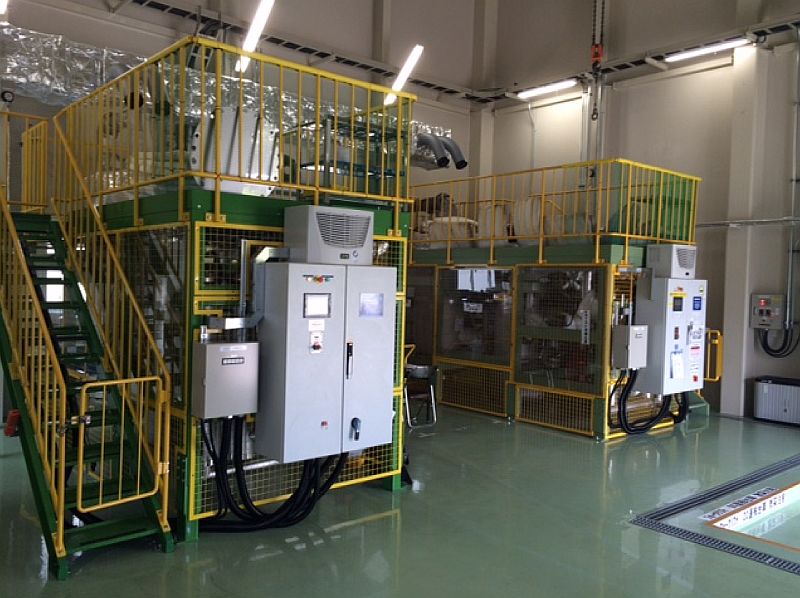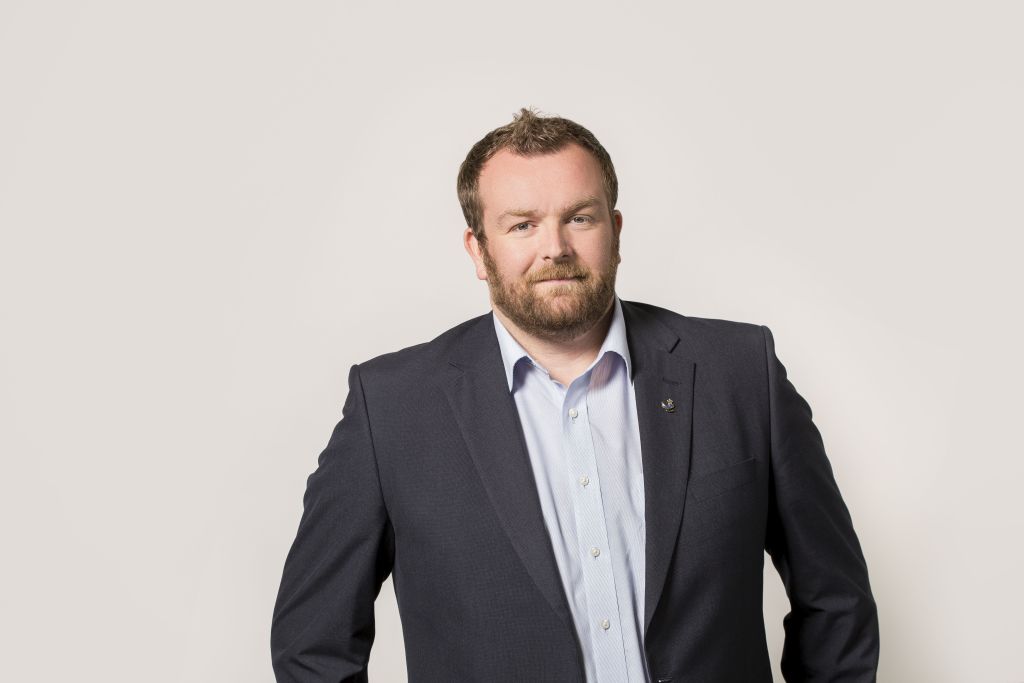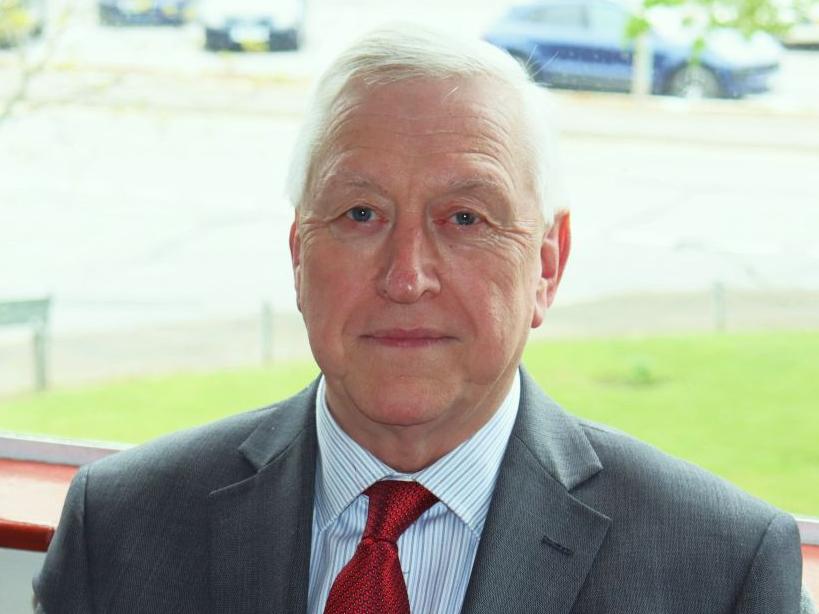Building a secure future for composites

Luke Vardy, CEO of Cygnet Texkimp, explains how the DEECOM long-form fibre recycling solution works, and what it means for circularity and sustainability in the composites industry.
A chance meeting at the International Composites Summit (ICS) in 2021 first brought together composites technology company, Cygnet Texkimp and component reclamation specialist, B&M Longworth. The two companies – both based in the North West of England – soon began a collaboration to develop and commercialise Longworth’s DEECOM recycling solution specifically for the composites industry.
12 months on, Cygnet Texkimp now holds the exclusive license to manufacture and sell DEECOM technology into the global composites market. Working with several leading composites researchers, manufacturers and end users, the two companies are developing the process as an enabling technology to support the composites industry’s sustainability and decarbonisation ambitions with applications ranging from marine waste to wind turbines, automotive, aerospace, rail and construction.

DEECOM relies on super-heated steam applied in a pressurised environment – a process called ‘pressolysis’ – to separate the resins and fibres in end-of-life composite components and material waste, without the use of chemicals or burning, and reclaim high quality fibre for reuse.
Composite materials are difficult to recycle, largely due to the fundamentally different properties of their constituent parts. Until now, the most common methods of recycling – pyrolysis (fire), thermolysis (heat), solvolysis (chemical), hydrolysis (water), chopping or shredding – have typically resulted in short, degraded fibre with significantly lower mechanical properties than virgin fibre.
While there are applications for this material, such as additives for construction or injection moulding, it is not suitable for reuse in high performing or structural products. Unlike pressolysis, these recycling methods down-cycle the materials, losing the resin ingredients and stripping value and multiple life cycles from the fibre.
It is this ability to reclaim long-form, even continuous fibre which can be remanufactured into new parts that sets DEECOM apart from alternative technologies. Being able to reclaim continuous, high quality carbon fibres which retain length, format, shape and performance makes DEECOM particularly relevant to sectors such as aerospace and automotive where fibres of the highest integrity and consistency are demanded.
Sustainability ambitions
As a leading technology partner to the sector globally, part of our role at Cygnet Texkimp is to help composites manufacturers and end users manage their impact on the environment using technologies that improve process efficiency and product performance and reduce waste in the manufacture of composite materials and parts.
Until now, this has meant developing machinery that enables manufacturers to produce the lightest, thinnest, strongest composite materials in the world more quickly and consistently than ever before.

Our decision to develop DEECOM as a major part of our machinery portfolio means that we are now able to offer the advanced fibre industry a full lifecycle of technologies from handling, processing and manufacturing to end-of-life management, recycling and repurposing.
The composites industry has an urgent mandate to improve its sustainability practices and build a more secure future for composite materials, motivated by the need to meet its environmental responsibilities and overcome supply issues.
The industry is booming, but analysts the world over warn that more needs to be done to secure its future. A significant shortage of carbon fibre globally means there isn’t enough supply to sustain anticipated levels of demand, which are expected to grow five-fold between 2025 and 2030, far exceeding global manufacturing capacity.
At the same time, there is an inherent problem of wastage in the manufacture of composite parts. As much as 50% material waste is created in the manufacture of high-end automotive parts.
The issues of supply and wastage are compounded by the monumental challenge of how to successfully manage composite structures at the end of their useable life. Without viable and affordable recycling solutions, large volumes of retired parts, including aircraft, motor vehicles and wind turbines, are sent to landfill or held in remote desert storage at massive cost to the environment.
DEECOM (Decompressive stripping process) was invented by Longworth almost 20 years ago as an environmentally-friendly alternative to expensive and harmful solvents, such as Tri-ethylene Glycol (TEG), and damaging pyrolysis. Its original use was to reclaim valuable metal manufacturing components from polymer waste.
As well as separating polymer from metal, the solution left fine mesh filters intact and could capture the polymer. This opened up the possibility that each element could be recycled or reused in another application, and so its relevance to composites was recognised.
Transforming recycled fibres
Our work has effectively disproven the previously held view that recycled carbon fibre (rCF) is ‘short, fluffy, difficult to handle and overpriced’. In the DEECOM process, the fibres are not bent, damaged or burnt. In the simplest terms they are cleaned of resin and returned to a state that is remarkably close to their original state. Meanwhile, the resin, which is transformed into a gas or a liquid depending on the type of resin and its reaction to the process, can also be collected.
Our development work includes several collaborative projects with manufacturers, end users and researchers to test and refine the technology. Working in collaboration with the National Composites Centre, for example, DEECOM has, for the first time in the UK, successfully reclaimed carbon fibres from whole pressure tanks used to store hydrogen gas before the recycled fibres were rewound into a new vessel.
DEECOM has also been chosen as the chief enabling technology at the centre of a consortium to address the challenge of recycling composite materials in the marine industry. The Blue Composites Project seeks to address the key environmental challenges facing the UK’s marine industry in its transition to zero-emission shipping by 2050.
At the same time, we are engaging the expertise of composites research organisations including the Royce Institute and the Northwest Composites Centre at the University of Manchester to investigate the characteristics of the reclaimed fibres and determine the full potential of the technology as a workable solution to transform end-of-life outcomes.
To achieve full circularity, we are also working with resin manufacturers to identify the best uses for the resins reclaimed in the process. Our aim in these programmes is not only to show that composites can be recycled, but that it is worth doing in environmental, practical and economic terms.
The market potential
The potential impact of this technology on the composites market is considerable. Through the processes of reclaiming and reusing, DEECOM provides the possibility of using every carbon fibre multiple times. Giving composite fibres multiple lifecycles means massively reducing their lifetime cost and environmental footprint and create a more abundant and consistent supply of carbon fibre. Being able to incorporate any amount of recycled fibre into a composite material or part makes it more sustainable, and the more uses the industry can identify for consistent, high-quality rCF, the more we can reduce pressure on the virgin fibre supply chain.








